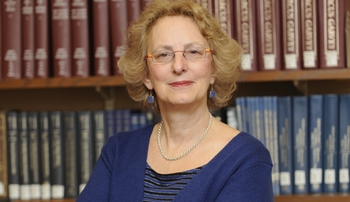Many believe that some of the men who participated in the infamous Tuskegee Experiment were given syphilis by the government.
 |
Susan Reverby, Ph.D. |
“We will look at some of the key beliefs about these now infamous research studies in Tuskegee and Guatemala to ask if we can move away from a melodramatic understanding of what happened,” said Dr. Reverby, who has written two books on the Tuskegee Experiment. “I also will discuss why this is often difficult to do.”
Misinformation abounds
Another example of misinformation about the experiment is the idea that none of the participants received treatment for syphilis, Dr. Reverby said.
“I will focus on how some of the men did get treatment and why we do not know about this,” she said.
Full truth for full lessons
It’s important to get the accurate representation of history, Dr. Reverby said, to gain the full lessons of the experiences.
“When we think in melodramatic terms we believe we already know the story,” she said. “We cannot really identify with the stock characters because they aren’t like us. We need to imagine ourselves as both the researchers and the subjects/controls to learn from these events.”
Dr. Reverby’s seminar starts at noon in the Eppley Science Hall. Lunch will be provided to the first 60 in attendance.